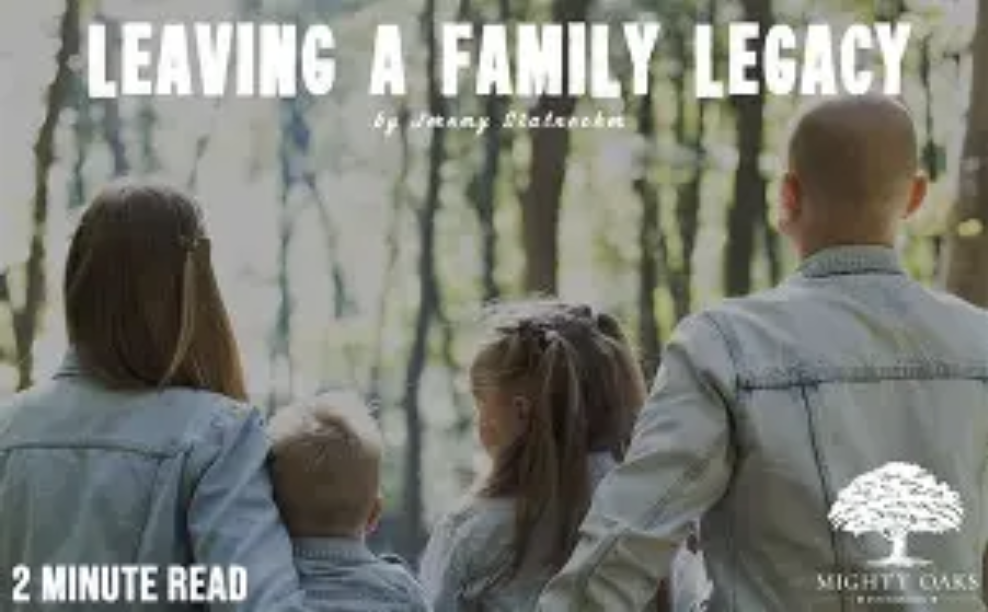Prosperous people do not simply gather riches—they excel in the skill of transferring them. While numerous individuals regard insurance as nothing more than a safeguard, the wealthy view it as a covert tool for creating a lasting legacy. It isn’t just about compensating for losses; it focuses on engineering a smooth, tax-effective, and purposeful movement of assets that upholds their principles and ensures their family’s stability for years to come. These insights are seldom disclosed.

Estate taxes have the potential to diminish nearly fifty percent of a family's financial assets; however, wealthy individuals utilize insurance as a countermeasure. An appropriately arranged permanent life insurance policy offers a death benefit that is free from taxes, thus covering estate tax obligations. Consequently, heirs are not required to sell valuable possessions—such as family businesses, real estate, or art collections—to pay off debts. This converts a possible financial strain into an efficient tax transfer, allowing the main portion of the wealth to remain intact.
Equalizing Inheritances Without Conflict
Not every heir is interested in or capable of managing the same types of assets. For instance, one child might want the family business whilst another might seek cash. Insurance addresses this issue. Wealthy families designate insurance payouts to beneficiaries who do not acquire physical assets, ensuring that everyone receives an equitable and fair division. This practice prevents unpleasant conflicts regarding property or management of the business, maintaining family unity alongside their heritage.
Guaranteeing Legacy for Blended Families
Blended families encounter specific inheritance difficulties. Insurance allows wealthy individuals to determine precisely how their assets will be allocated, ensuring that stepchildren, biological offspring, or spouses receive their intended portions. For instance, a trust-established life insurance policy can secure financial stability for a spouse while allocating other properties for children from a previous relationship. This clarity eliminates uncertainty, rendering wishes legally enforceable.

Legacy for Causes Beyond Family
For a considerable number of wealthy individuals, their legacy also encompasses charitable endeavors. They incorporate charitable giving options in their life insurance policies to contribute to the causes important to them. By selecting a charity as a beneficiary, they ensure that a part of the death benefit is directed toward philanthropy, creating a lasting influence long after they are gone. This merges personal legacy with social impact, transforming wealth into a catalyst for transformation.

Risks related to businesses or lawsuits may jeopardize inherited wealth. The affluent protect their legacies by placing insurance policies within irrevocable trusts. Such trusts safeguard the cash value and death benefit of the policy from creditors, guaranteeing that the funds arrive to heirs as intended. It serves as a precautionary measure against external threats that could dismantle years of wealth accumulation.
Flexible Legacy Adjustments Over Time
Life transitions—such as having new children, expanding a business, or changing priorities—prompt the need for insurance to be adaptable. Wealthy individuals utilize policies with flexible beneficiaries or riders, allowing them to boost coverage as their financial situation evolves. This adaptability ensures that their legacy strategy remains relevant, changing alongside their family’s needs and aspirations. It serves as a versatile instrument, rather than a one-dimensional document.
Ultimately, the insurance legacy approach favored by affluent individuals is straightforward: they view insurance as a key planning tool rather than a secondary consideration. This strategy transforms uncertainty into assurance, making certain that their wealth does not merely conclude with them—but continues and embodies their principles while securing their family’s future. For those with significant financial resources, this endeavor transcends simple legacy planning and evolves into legacy expertise.



